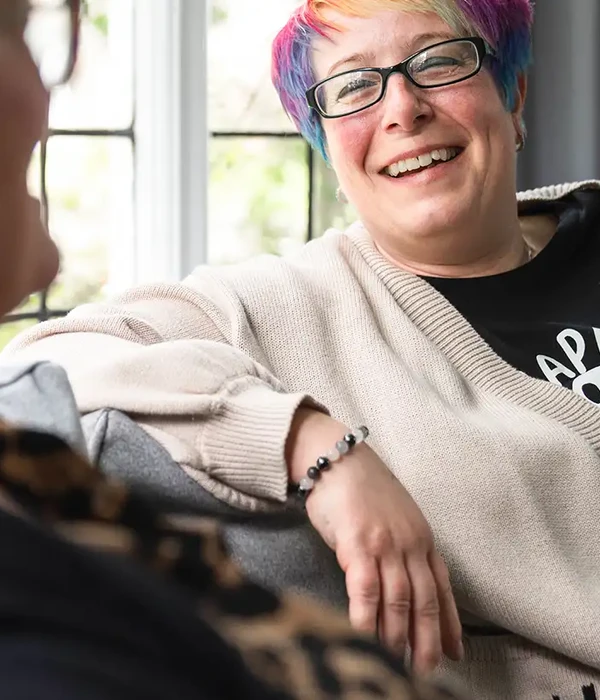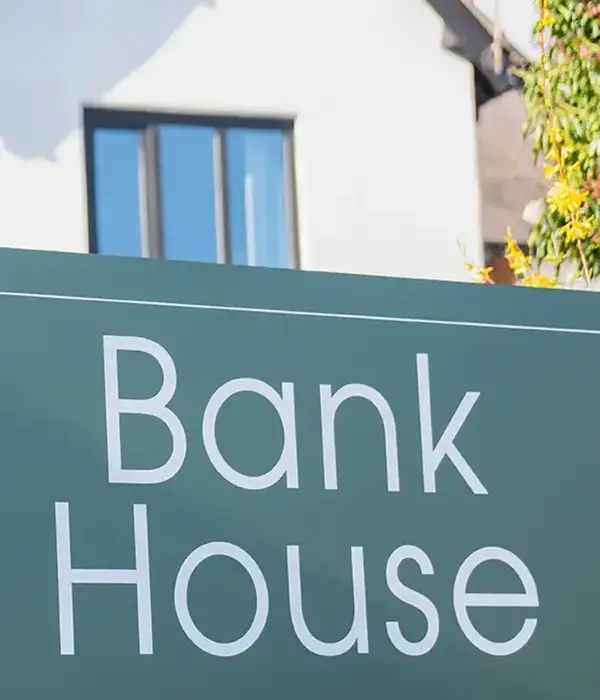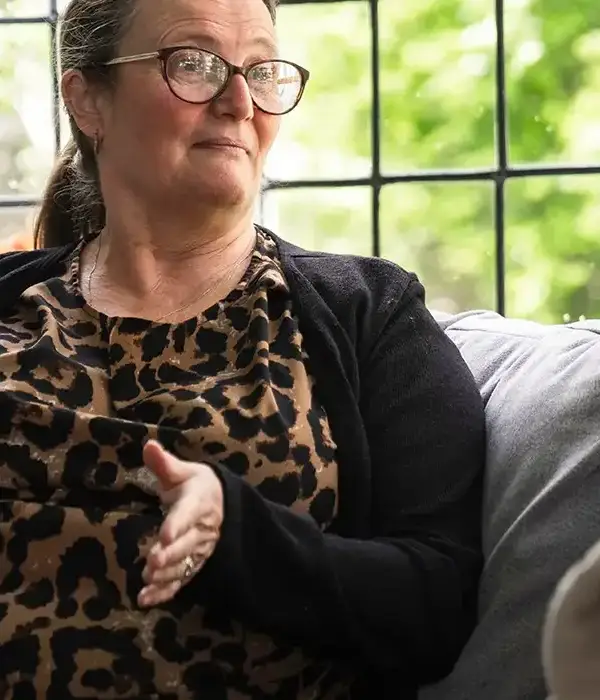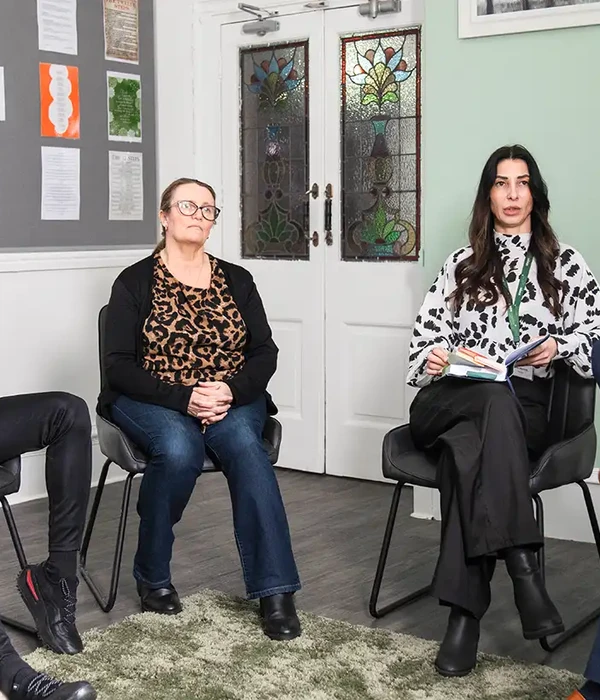Pregabalin Addiction Treatment
Effective pregabalin addiction treatment can help you safely stop using the drug and regain control of your life. If you are struggling with pregabalin misuse, you are not alone, and there are proven methods to support your recovery.
Knowing what to expect from treatment gives you the chance to prepare and make informed decisions for your health. Seeking a professional treatment programme can help those who become addicted to pregabalin find a way forward from their misuse.

Take the First Step Towards Recovery
Steps Together offers personalised support and proven treatments, providing the care, guidance and encouragement you need to move forward with confidence and build a healthier future.

Understanding Pregabalin Addiction
Pregabalin, often sold under the brand name Lyrica, is a prescription medication that is increasingly used to treat conditions such as epilepsy, anxiety, and pain. It belongs to a class of medications known as gabapentinoids, which includes gabapentin. While medically useful, there’s also a risk of addiction with misuse.
Drugs like pregabalin affect the central nervous system and calm overactive nerve signals. They are not considered opioids, but like many prescription medications, they have the potential for misuse.
How Pregabalin Addiction Develops
Addiction to pregabalin often begins with regular use for valid medical reasons, such as controlling seizures or nerve pain. Over time, your body may become tolerant, needing higher doses to experience the same effects.
Some people misuse pregabalin for its calming or euphoric effects. This misuse can lead to drug addiction, behaviours like taking larger amounts, using it more frequently than prescribed, or ‘doctor shopping’ for extra prescriptions.


Difference Between Dependence and Addiction
Pregabalin dependence happens when your body becomes used to the drug’s presence, which leads to withdrawal symptoms, such as anxiety, sweating, nausea, or difficulty sleeping, if you stop taking it suddenly or miss a dose for whatever reason. This physical response is your body’s way of reacting to the absence of the substance to which it has become acclimated.
Addiction, however, goes beyond physical dependence. With addiction, psychological patterns are involved, like a loss of control, cravings, compulsive drug-seeking, and continuing use despite negative consequences. Many people may experience both dependence and addiction simultaneously. Understanding the difference is key to getting the right support and choosing an effective treatment path for lasting recovery.
Pregabalin Addiction Treatment
Treating prescription drug addiction involves several steps, each targeting different aspects of recovery. Supportive care helps manage withdrawal, build lasting habits, and prevent relapse. Pregabalin addiction treatment can include:
Pregabalin Detox
Detox is usually the first step for pregabalin addiction treatment. During detox, your body clears pregabalin so you can begin recovery without the drug’s direct effects. Detox should be medically overseen, as pregabalin withdrawal symptoms can include anxiety, insomnia, agitation, irritability, and in some cases, seizures, particularly with high-dose or long-term use.
You might be given medications to ease discomfort or manage specific symptoms. Your doctor will monitor your vital signs and adjust your care as needed. Staying in a detox clinic or hospital may be safer if you have other health problems or severe addiction.
Outpatient Treatment
Outpatient pregabalin rehab allows you to continue living at home while receiving structured support through scheduled appointments. This can include individual counselling, group therapy, and regular medical check-ins. It’s a suitable option for those with mild to moderate dependence and a stable home environment.
Therapies such as Cognitive Behavioural Therapy and Dialectical Behaviour Therapy help you explore the underlying causes of your addiction, identify triggers, and develop healthier coping strategies. Group therapy adds an element of peer encouragement and shared insight, fostering a sense of connection and motivation as you collectively work toward lasting recovery from drug misuse.
Inpatient Rehab
Inpatient rehab means you live at a treatment centre during your recovery. This environment removes distractions, helping you focus on getting better. Inpatient treatment for pregabalin addiction is especially helpful if you need close monitoring for a severe substance use disorder.
You will likely have a mix of therapies, including one-to-one counselling, group therapy, and skills-based sessions. These address both the physical and emotional parts of addiction. Cognitive-behavioural therapy and dialectical behaviour therapy are often included to help you manage thinking patterns and emotions.
Aftercare
Aftercare helps maintain progress once you complete primary pregabalin treatment. This step includes ongoing counselling, peer support groups, and relapse prevention planning. You might keep seeing a therapist, join a support group, or have regular check-ins with your clinic.
Aftercare often covers ways to deal with stress, rebuild relationships, and recognise early signs of relapse. Your plan may involve family therapy, job support, or drug testing. Staying engaged in aftercare activities reduces your risk of lapses.
Other prescription drug addictions we treat

Ongoing Recovery Support
Long-term success with pregabalin addiction recovery depends on steady support. Family can play a crucial role in your ongoing recovery. Honest communication and encouragement from loved ones help build trust and stability at home. When your family is involved, they’re more likely to notice early signs of relapse and offer support if you feel tempted.
Many addiction programmes encourage family members to take part in therapy sessions. This might include family counselling or educational workshops about addiction and recovery. These sessions help families learn healthy ways to respond and provide the right kind of help.
Support Groups
Support groups offer a valuable space to connect with others who truly understand what you’re going through. Sharing your experiences and listening to others can help reduce feelings of isolation, build confidence, and provide hope, especially during challenging moments. Group therapy encourages open discussion, feedback from peers, and collective problem-solving, all of which are instrumental in long-term recovery.
You might consider national organisations such as Narcotics Anonymous, local support sessions for prescription drug addiction, or aftercare programmes offered by many treatment centres. Many people also benefit from online forums and virtual meetings, which provide flexible access to community support anytime you need it.

Signs and Symptoms of Pregabalin Addiction
You might notice physical signs such as dizziness, drowsiness, and a lack of coordination. Headaches, blurred vision, and weight gain are also common side effects. More serious side effects can include difficulty breathing, rapid heartbeat, and muscle pain.
Psychologically, you could feel strong cravings to keep taking pregabalin. Anxiety, mood swings, and depression are frequent, especially if you try to stop using the drug. Withdrawal symptoms like sweating, tremors, insomnia, and irritability may happen when you miss a dose or try to quit suddenly.
Behavioural changes often show before someone realises they have a problem. You might spend more time thinking about how to get or use pregabalin. Some people begin to ignore work, school, or family responsibilities in favour of using the drug.
Treatment Modalities
Managing pregabalin addiction often requires several kinds of therapy delivered by trained professionals. Each method targets withdrawal symptoms, anxiety, and underlying causes to help you regain control and advance in addiction recovery. Modalities used in a treatment plan may include:
Behavioral Therapies
Cognitive behavioural therapy (CBT) is a widely used therapy for pregabalin addiction. CBT helps you identify negative patterns in thoughts and behaviour that contribute to drug-seeking, emotional dysregulation, or relapse risk. In CBT, you and your therapist may keep a diary to track cravings and triggers.
Dialectical behaviour therapy is useful if you struggle with emotional regulation during pregabalin withdrawal. DBT combines cognitive-behavioural techniques with mindfulness, helping you manage intense feelings that arise in addiction recovery. A main feature of DBT is helping you accept yourself while working towards change.
Motivational Interviewing
Motivational Interviewing (MI) is a counselling approach that helps you resolve inner conflict about stopping pregabalin use. The focus is on increasing your motivation to change, even if you feel uncertain.
In MI sessions, you and the therapist work together to explore your reasons for using pregabalin and the costs to your health, relationships, and life goals. The therapist asks open questions and listens without judgment to encourage honest reflection.
Eye Movement Desensitisation and Reprocessing (EMDR)
EMDR is a therapy mainly aimed at people whose drug use is linked to trauma or deeply rooted stress. During EMDR, you revisit distressing experiences in short, controlled sessions while performing guided eye movements.
For people in pregabalin addiction recovery, EMDR can help process trauma that may trigger misuse or worsen pregabalin withdrawal. EMDR may also lessen anxiety and stress responses, contributing to more stable recovery. Therapists customise each session based on your needs, so it is safe and paced to your comfort.

Seek Treatment for Pregabalin
Getting help for pregabalin misuse can feel overwhelming, and at times, it may seem like addiction has taken over your entire life. You are not beyond help; recovery is possible, and with the right support, you can break free from dependence on pregabalin.
At Steps Together, our professional pregabalin addiction treatment offers a safe, structured path toward healing. Through medical detox, personalised therapy, and long-term recovery planning, we help you regain control, rebuild your confidence, and take back your life from addiction, one step at a time.
Frequently Asked Questions
What are the common signs of dependence on pregabalin?
You may notice you need higher doses to get the same effects. Taking pregabalin more often than prescribed or using it for non-medical reasons are warning signs. Other indicators include trouble stopping use, mood swings, sleep problems, and cravings.
What are the standard treatment options for pregabalin abuse?
Treatment usually starts with a medically supervised detox to manage withdrawal symptoms. After detox, you might receive therapy, including cognitive behavioural therapy and one-to-one or group counselling.
What role does counselling play in the recovery from pregabalin addiction?
Counselling helps you understand why you began misusing pregabalin and teaches ways to avoid relapse. You will learn coping strategies and ways to manage stress or triggers.
How does one safely discontinue the use of pregabalin to avoid withdrawal symptoms?
Stopping pregabalin suddenly can lead to strong withdrawal symptoms. It is important to reduce your dose gradually and only under medical supervision.
Are there any support groups for individuals dealing with pregabalin misuse?
Support groups offer a safe place to share experiences and get encouragement. Some groups are specific to prescription drug addiction, while others are general, like Narcotics Anonymous or SMART Recovery.
How long does it typically take to overcome addiction to pregabalin?
The length of recovery is different for everyone. Some people may see progress within a few months, while others need longer, especially if they have used pregabalin for a long time.





